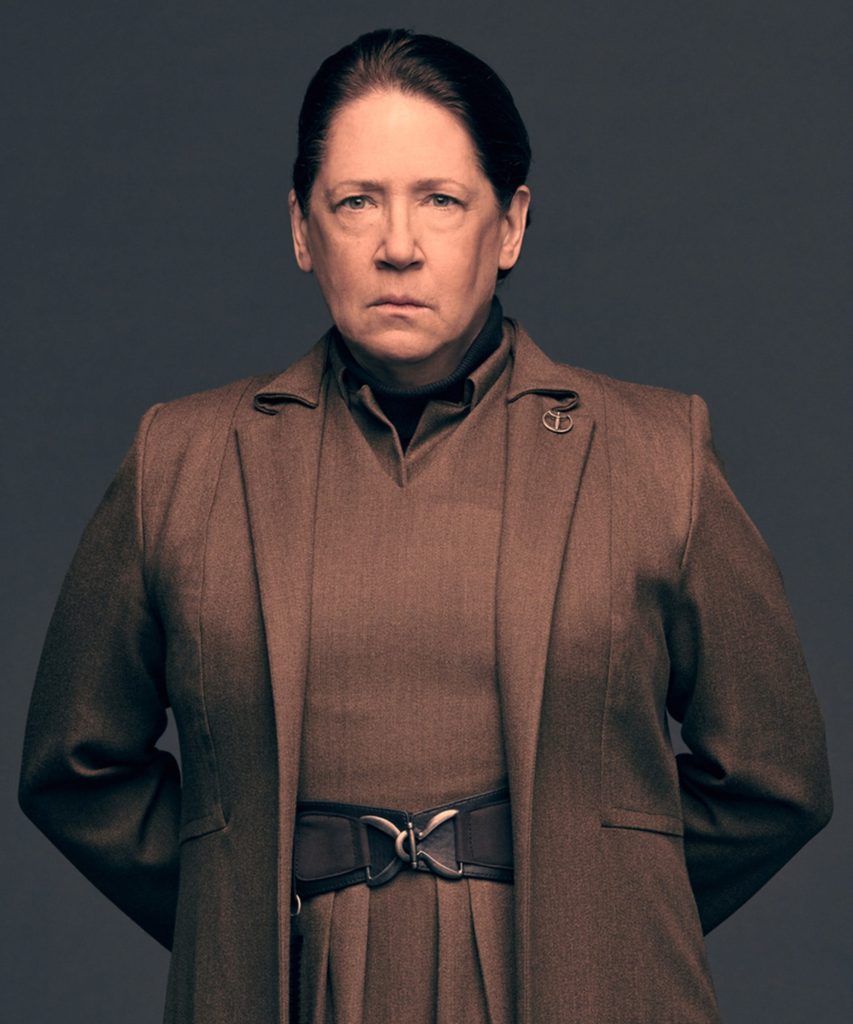
Wednesday
It appears that Judge Amy Coney Barrett, whom Republicans want to jam onto the Supreme Court in order to ensure a far-right tilt, was once a “handmaid” in the conservative Christian group People of Praise. I mention this because, while the position immediately conjures up thoughts of Margaret Atwood’s dystopian novel and its sequel, she was not that kind of handmaid. Finding equivalents with the positions occupied by women in Atwood’s books, she is more like an Aunt after having started off as a Pearl Girl and then a Supplicant.
As reported by the Washington Post,
A 2010 People of Praise directory states that she held the title of “handmaid,” a leadership position for women in the community, according to a directoryexcerpt obtained by The Washington Post.
Also, while in law school, Barrett lived at the South Bend home of People of Praise’s influential co-founder Kevin Ranaghan and his wife, Dorothy, who together helped establish the group’s male-dominated hierarchy and view of gender roles. The group was one of many to grow out of the charismatic Christian movement, which sought a more intense and communal religious experience by embracing such practices as shared living, faith healing and speaking in tongues.
Handmaids in Atwood’s Tale are modeled on Hagar, whom Abraham used to beget a child because his wife Sarah was (or appeared to be) infertile. Atwood’s Gilead has resorted to handmaids because so many women, perhaps due to radioactivity, have become barren.
Handmaids in the People of Praise church, by contrast, are so-called because Mary was a “handmaid to the Lord.” As such, they are tasked with carrying out the Lord’s will.
In terms of Handmaid’s Tale, then, Barrett is more akin to Aunts Lydia and Vidala, the female enforcers of patriarchal hierarchy. (Those vowing to devote their lives to Christ start off as Pearl Girls and then become Supplicants or Aunts-in-training.) Although Aunts have some power, it is power used to keep women in their assigned roles as wives, handmaids, and domestic Marthas. While Republicans are berating Democrats for protesting a woman’s candidacy, Washington Post columnist Monica Hesse explains,
We don’t have to support giving one of the most powerful jobs in the country to a woman who would use the job to take away rights of other women.
That Barrett seems poised to do this, just as Clarence Thomas has made life harder for African Americans, is indicated by her past history. Hesse lays it out:
[T]he job of feminism is to ask: Is this judgment making the country a more equal place? Is this ruling supporting all genders in making decisions for their own lives, without being encumbered by discrimination? Does this judge accept that women should get to have the same mastery over their bodies that men have always had over their own? That members of the LGBTQ community should have the same rights to marriage, adoption or employment as straight people?
On at least some of those topics, one can make reasonable assumptions. We can assume Barrett will support overturning or weakening Roe v. Wade and other abortion-related legislation; Trump promised that any of his justices would. “I am putting pro-life justices on the court,” he said in 2016. Prominent antiabortion groups, like the Susan B. Anthony List, have loudly cheered her nomination. Recently, a newspaper advertisement surfaced from 2006 — an open letter demanding “an end to the barbaric legacy of Roe v. Wade,” which Barrett had signed. Another 2013 ad, written by Notre Dame faculty and staff and also containing her name as a signatory, called for “the unborn to be protected into law.” She was a member of the university’s “Faculty for Life” group until 2016.
Meanwhile, progressive groups such as the Human Rights Campaign, a prominent LGBTQ civil rights organization, and the National Organization for Women have released statements of alarm, expressing concern over Barrett’s previous statements on the Affordable Care Act — which had codified free birth control — and the Supreme Court decision that legalized same-sex marriage.
It seems more likely, though, that after years of promising to take away reproductive freedom or curtail the rights of transgender people, and after publicly lobbying for a Supreme Court amenable to these goals, conservatives have found someone they feel will get it done.
Democrats probably cannot prevent the Republican Senate majority from remaking the Supreme Court in their own image. At this point, they can only hope that Barrett proves more moderate than she appears.
Atwood’s Lydia gives them some basis for such hope. In the sequel, Lydia is actually working for the resistance, taking down the Christian state from within. After Lydia pulls the trigger, Gilead is exposed in all its corruption and begins to fall apart. The Testaments has a remarkably upbeat ending for an Atwood novel.
Unfortunately, I don’t think that Barrett will prove to be a resister. Aunt Lydia, herself a former judge, holds on to her resentment at the pressure that caused her to support the patriarchy. (She had to execute fellow feminists to prove her loyalty.) The privileged Barrett, by contrast, appears to be a true believer, more like Aunt Vidala. Lydia triumphs over Vidala in the novel, but I don’t think we will be so lucky.

